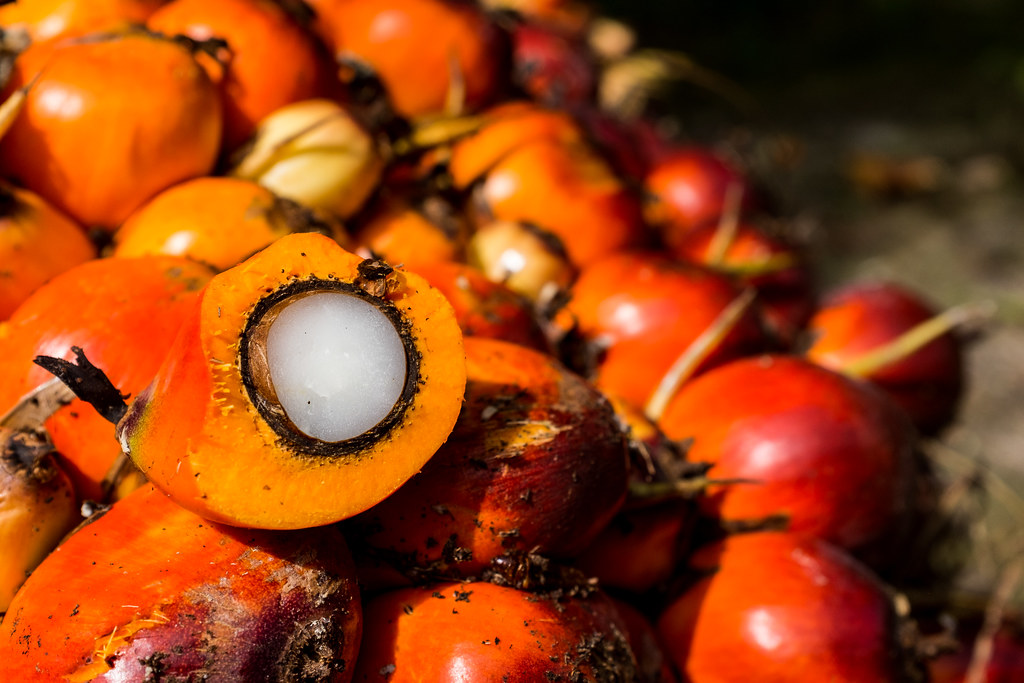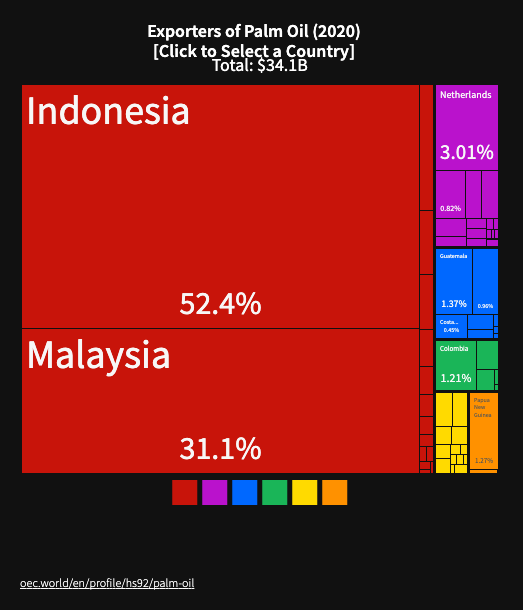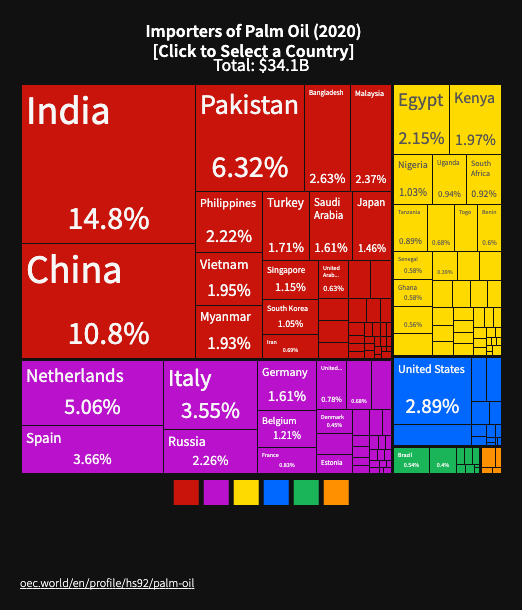Because palm oil prices are soaring

With the perpetration of the war in Ukraine, countries are closing in on themselves more and more and raw materials are protected within their borders. The case of palm oil
Palm oil yes, palm oil no. The debate has been going on for years between those who continue to defend it and those who advise against it both for its quality and for the problems of deforestation and exploitation of workers.
Meanwhile, Indonesia, the world's leading producer, has banned its exports from next Thursday and prices have skyrocketed.
WHY INDONESIA BLOCKS EXPORT
On April 28, Indonesia's ban on palm oil exports will come into effect. This was announced by President Joko Widodo to counter the shortage on the local market and try to contain the rise in prices at the national level.
Similar moves are not new in Indonesia. In fact, limits on palm oil exports had already been established from January to March, causing – even in that case – a sharp increase in prices. The current block will focus on refined, bleached, deodorized palm olein but not crude palm oil.
Furthermore, according to the Jakarta Post , Widodo's government is under increasing pressure due to both inflation and discontent over the proposal of some of its supporters to delay the presidential elections of 2024 in order to extend its mandate.
WHO EXPORTS MORE PALM OIL
According to the Observatory of Economic Complexity (OEC), Indonesia is the country that exports the most palm oil of all. It is responsible, in fact, for more than half of world exports (52.4%) and the data updated to 2020 speak of a turnover of 17.9 billion dollars.
Malaysia alone follows significantly with 31.1% of exports equating to $ 10.6 billion.
Third place, but far behind, for Holland from which 3.01% of palm oil, equal to 1.03 billion, originates.

WHO IMPORTS THE MOST PALM OIL
The three largest importers are India (14.8%), China (10.8%) and Pakistan (6.32%).
Italy delivers 3.55% of palm oil for a value of 1.21 billion dollars.

RAIN ON THE WET
The blockade of Indonesia, recalls the Guardian , comes at an already very difficult time: “It is happening while tons of exports of all the other main oils are under pressure: soybean oil due to the drought in South America; rapeseed oil due to disastrous harvests in Canada; and sunflower oil due to Russia's war in Ukraine, ”explained James Fry, president of commodity consultancy LMC International.
“Nobody can make up for the loss of Indonesian palm oil. Every country will suffer, ”commented Rasheed JanMohd, president of the Pakistan Edible Oil Refiners Association (PEORA).
Indonesia's ban "means we have a vegetable oil supply shock that will push prices higher and add to food price pressure by harming the most vulnerable," Trinh Nguyen, an economist at Natixis for l. Emerging Asia.
PRICES
Vegetable oil prices, writes the Guardian , have already risen by more than 50% in the past six months "because factors ranging from labor shortages in Malaysia to drought in Argentina and Canada – the largest exporters of soybean and canola – have reduced supplies ”.
The news given by Widodo immediately provoked the reaction of the markets, in fact, as Milano Finanza wrote yesterday, “at the Bursa Malaysia Derivatives Exchange in Kuala Lumpur, palm oil futures reached a maximum of 7,500 ringgit (1 Malaysian ringitt is equal to 0.22 euros, ed) with a jump of almost 7%, to then close with an increase of 1.47% to 6,972 ringgit ".
FORECASTS AND CONSEQUENCES
The increase in the price of palm oil, according to Ega Kurnia Yazid, a researcher at the Center for Strategic and International Studies in Jakarta interviewed by Al Jazeera, "will also likely be followed by an increase in the prices of substitute products such as canola, olive oil and coconut oil ".
Already on Friday, after the announcement, the same article reads, the price of soybean oil, the second most used vegetable oil after palm oil, has risen by 4.5% and some supermarkets in the UK have announced that they would have limited the sales of olive, sunflower and rapeseed oil to two or three items per customer.
For Tim Harcourt, an economist at the University of Technology in Sydney, "the ban will harm both exporters and importers and will distort trade" and even according to Yazid "the ban could affect global confidence in Indonesia and cause chaos for those who they buy its palm oil ".
HOW TO REPLACE PALM OIL
Large importers such as India and Pakistan will try to increase purchases of palm oil from Malaysia, according to Reuters , but the world's second largest producer cannot fill the void created by Indonesia.
Also because this raw material is not only used for food and cosmetic products but also for biodiesel. And if on the one hand a Malaysian group producing palm oil, supported by the state, has said that countries should suspend or slow down its use as biofuel to ensure an adequate supply for food use, on the other Indonesia and Malaysia have reiterated who will continue to use it for biodiesel despite rising prices.
This is a machine translation from Italian language of a post published on Start Magazine at the URL https://www.startmag.it/economia/perche-i-prezzi-olio-di-palma-stanno-schizzando/ on Tue, 26 Apr 2022 13:35:27 +0000.
